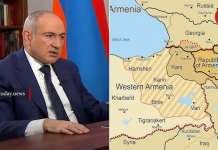By Philippe Raffi Kalfayan published in THE ARMENIAN MIRROR SPECTATOR
 There are many comments within the Armenian diaspora and Armenia about the order issued by the International Court of Justice (ICJ) on February 22, 2023. It seems appropriate to provide a frame of reference to better understand the meaning or scope of the judicial orders. To get a complete and accurate picture, it is necessary to explain the establishment and purpose of this court, its judges, its functioning, the advantages and limits of its acts. Then, I will analyze the two orders binding Azerbaijan. In the end, I will elaborate on the political outcome of those. While what happens after the order is still up in the air, there is one positive: This was the first time that Armenia has filed a claim at the ICJ and thus moved from a passive role to an active one.
There are many comments within the Armenian diaspora and Armenia about the order issued by the International Court of Justice (ICJ) on February 22, 2023. It seems appropriate to provide a frame of reference to better understand the meaning or scope of the judicial orders. To get a complete and accurate picture, it is necessary to explain the establishment and purpose of this court, its judges, its functioning, the advantages and limits of its acts. Then, I will analyze the two orders binding Azerbaijan. In the end, I will elaborate on the political outcome of those. While what happens after the order is still up in the air, there is one positive: This was the first time that Armenia has filed a claim at the ICJ and thus moved from a passive role to an active one.
ICJ: A Primer
The ICJ was established in 1945 through the Charter of the United Nations, as a successor to the Permanent Court of International Justice, which had been the judicial organ of the League of Nations (1920-1945). It is an exclusively inter-state jurisdiction, meaning only states can file claims against other states. In certain cases, the court can hear cases regarding damages caused by a third state against its nationals. This is called the principle of diplomatic protection (e.g., Cyprus v. Turkey at the European Court, or Democratic Republic of Congo v. Uganda, Guinea v. DRC or Qatar v. United Arab Emirates at the ICJ).
To allege the responsibility of a state, the mere violation of its obligations under treaties and conventions is sufficient. It does not require material damages.
The court is composed of 15 judges from 15 different countries, elected for nine-year terms. The nomination and election processes are highly diplomatic. The candidates appointed by the states carry out campaigns orchestrated by their diplomatic apparatus. Candidates must provide guarantees of competence and of former high-level appointments. The UN system manages this election with the aim of reaching a fair geographical representation. However, countries with a strong background in international law are rarely absent from this college of judges. The diplomatic pressures and bargaining by powerful states within the UN’s General Assembly and Security Council influence the election of judges and court’s general opinions.
The sources of law taken into consideration are imposed by the statutes. They consist of treaties and conventions, customary international law and general principles of law. When a case is referred to the ICJ, the judges debate the admissibility of the application. Even before examining the formal application, the court verifies that both parties have tried to reach an amicable compromise through negotiations.
Indeed, the judges consider that their mission is primarily to settle disputes and disagreements between states. The court avoids in principle adopting firm doctrinal stances on ultra-sensitive legal questions if it is not forced to. For example, in the advisory opinion on Kosovo, the court did not take a position on the underlying question of remedial secession and left it open-ended. In the current circumstances (the Russian-Ukrainian conflict and the secessions of Crimea and Donbass territories), the ICJ would not consider this topic in the best conditions, if ever the question were to be submitted in the case of Karabakh.
Armenia’s Racial Discrimination Complaint
Armenia and its counsels made use of the International Convention on the Elimination of Racial Discrimination (CERD) to launch proceedings against Azerbaijan. In the first case, the grievances refer to the non-protection of the Armenian prisoners of war (torture and ill-treatments), the non-protection of the cultural and religious heritage in Karabakh (destruction), and in the second case it refers to the non-protection of the health and the living conditions of the Armenian population of Karabakh (due to the blocking of the Lachin corridor).
The ICJ is increasingly solicited by States on the basis of the alleged violations of the CERD, particularly in the context of tense disputes, sometimes armed conflicts, between them. In consideration of increased allegations under this Convention, the ICJ is now pressed to define the scope of application. In the cases Georgia v. Russia, Ukraine v. Russia, Qatar v. United Arab Emirates, and the most recent Armenia v. Azerbaijan), none of them reached yet the judgment on the merits. In Qatar/UAE, the court concluded its lack of material jurisdiction (February 2021) because nationality is not within the scope of CERD. On the other hand, in Ukraine v. Russia, it confirmed its jurisdiction (November 2019).
If an urgent situation arises, a party may submit a written request for the indication of provisional measures at any time during the proceedings. That request has priority over other ICJ pending cases. Armenia submitted two urgent requests, both of which resulted in mostly positive orders (December 7, 2021 and February 22, 2023).
The court does not have, for the purposes of its decision to establish the existence of violations of CERD, but it must determine whether the circumstances require that provisional measures be taken when there is a risk of irreparable prejudice to the rights of the requesting state or of its nationals or when failure to respect these rights may lead to irreparable consequences. This obliges the court to examine whether the rights that Armenia has sought to protect are plausible and to verify that there is a genuine link between the rights to be protected and the provisional measures requested. The Court also aims, for the sake of settling the dispute between the two States, at preventing any aggravation of the latter.
In the Order of December 7, 2021, the court observed that international humanitarian law governs the release of persons fighting for a state who have been detained during hostilities with another state. The court considered, however, that the right of Armenian prisoners not to be subjected to inhumane or degrading treatment based on their national or ethnic origin, while in custody or detainment, is a plausible right. The court also considered that the rights allegedly violated as a result of acts of incitement and encouragement of racial hatred and discrimination against persons of Armenian national or ethnic origin by senior Azerbaijani officials and degradation and desecration of Armenian cultural heritage are plausible rights too.
Azerbaijan, for its part, claimed that there is no connection between the measures that Armenia claims and the rights enshrined in CERD.
In the second request, Armenia demanded that Azerbaijan stop orchestrating and supporting the environmentalists’ so-called “acts of protest,” ensure that the free and uninterrupted movement of all persons and of all vehicles and goods along the Lachin Corridor is guaranteed in both directions, and to immediately and fully restore the supply of natural gas and of other goods supplied by utility companies to Nagorno-Karabakh, and refrain from interrupting or hindering it.
In its Order of February 22, 2023, the court considered that the blockade poses a risk of irreparable harm, since the health and life of the persons under blockade are endangered. It concluded that Azerbaijan must, pending the final decision, take all measures at its disposal to ensure the unimpeded movement of people, vehicles and goods along the Lachin corridor in both directions. It rejected at this phase the two other Armenian requested provisional measures relating to acts of protest and the supply of natural gas, lacking evidence.
The Ministry of Foreign Affairs of Azerbaijan reacted officially by pointing up the two rejections. They also highlight the nuanced wording “at its disposal,” since the government agent had pleaded that the Lachin corridor was under the control of Russian forces. Azerbaijan tries to convince the court that it does not have control over all the measures enabling movement along the corridor due to the provisions of the ceasefire agreement of November 9, 2020.
Uncertain Legal Outcome
Judge Yusuf, in a dissenting opinion (for both orders), doubted that considerations of race and racial discrimination can apply to the protection of cultural and religious heritage and argued that there is no direct or causal link between the provisions of CERD and the protection of cultural and religious sites. He pointed out that the drafters of the convention decided not to refer to religious discrimination or intolerance. He denounced the “catch-all” approach of the court, which accepts grievances under CERD, while they, in reality, fall under international humanitarian law or under the legal instruments relating to the protection of cultural heritage.
The question has been left open until the preliminary objections stage. Could international politics (acceptation of Ukraine claim against Russia on the basis of the CERD) tilt the court’s opinion towards a more generous interpretation of the scope of racial discrimination?
The issue of the blockade and siege of the Karabakh enclave raises another question: is it linked to the problem of racial discrimination or rather based on the general issues of the protection of human rights? We are no longer in a context of armed conflict between two states. It is therefore uncertain whether international humanitarian law is applicable. Indeed, the treatment of the Armenian inhabitants of Karabakh may be analyzed in the light of Azerbaijan’s general human rights obligations vis-à-vis its own citizens, even if these “citizens” have lived in an independent “state,” albeit an unrecognized one, for more than 30 years. The Azerbaijani authorities repeated on March 13 that “the issue of the rights and security of the Armenians living in Karabakh will be resolved under the Constitution and laws of Azerbaijan. There are no special privileges for them (…) this issue has nothing to do with Armenia and other countries.”
Two Diplomatic Consequences
At the January 30, 2023 public hearing, the Agent of Azerbaijan first asserted that the Lachin Corridor was not cut off from traffic. Second, he affirmed that his government was committed and continues to take all measures in its power to ensure the safe movement of people, vehicles and goods on the Lachin road, including by continuously communicating with the International Committee of the Red Cross and the Russian peacekeeping forces, trying to establish a dialogue with the people of Karabakh.
The ICJ took note of this statement, but considered that it did not completely eliminate the immediate risk of irreparable harm being caused by the disruption of movement. This is a strong position by the court to protect the Armenian population of Karabakh, but in no way prejudges future decisions.
Azerbaijan has also argued that the Lachin Corridor is under Russian control. The court emphasized that the trilateral cease-fire agreement provides that “the Lachin corridor which will provide a connection between Nagorno-Karabakh and Armenia…shall remain under the control of the Russian Federation peace-making forces” and further that “Azerbaijan shall guarantee the security of persons, vehicles and cargo moving along the Lachin Corridor in both directions.” This reminder of the provisions of the trilateral ceasefire declaration is not trivial and has an unexpected consequence: it reinforces the international legal value of the November 9, 2020 ceasefire agreement, while the Armenian Parliament has never discussed nor ratified it. This reference by the court, therefore, incidentally binds the two states to it.
Binding vs. Enforced
A provisional order or a final judgment of the ICJ are judicial acts with binding legal force for both parties as soon as they are issued. Moreover, the court may at any time request information from the parties on any questions relating to the implementation of the measures.
On the other hand, any international jurist knows that the judgments and orders of the ICJ or of any other international court or foreign tribunal are neither self-enforcing nor can they be enforced on the territory of a state without the approval of the state’s judicial or political authorities, even in the event of a final judgment. Execution depends on political will. This is one of the shortcomings of international law and of the effectiveness of its judicial organs.
The statute of the court provides that the Security Council is automatically informed of the court’s provisional measures and judgments. The UN Charter provides that “if any party to a case fails to perform the obligations incumbent upon it under a judgment rendered by the court, the other party may have recourse to the Security Council, which may, if it deems necessary, make recommendations or decide upon measures to be taken to give effect to the judgment.” Such provision is not clearly drafted for an order on provisional measures and such situation never happened. In LaGrand case (Germany v. United States), the Court confirmed that the recourse applies to “judgments” (the ICJ final judgments in the ongoing proceedings under CERD will be issued in a few years from now), meanwhile it highlighted the unclarity whether it could apply to provisional measures, due to the ambiguity of the wording used in the Statute.
Political, Diplomatic Significance of ICJ Judiciary Acts
The first benefit resulting from the ICJ order is that if Azerbaijan does not comply with the order, there is the possibility to convince other powerful states to apply sanctions of a diplomatic, economic and financial nature. This requires a continuous and convincing diplomatic action at the Security Council or at other interstate forums.
One problem: Ukraine is the focus of all attention and has rendered other disputes invisible. The Western undeclared war against Russia is poisoning all international affairs and does not leave room for other cases. No third state is willing to take a firm position or legal steps for Armenia, since Turkey is a spoiler and has paralyzed the West.
Second issue: the strategy of the Armenian side was unclear and it remains so: tensions between Armenia and Karabakh are now public.
Irrespective of this unclarity, the discourse that tends to defend at all costs the idea of a peace treaty may be a good excuse for the ICJ to take a balanced position in order to mitigate the aggravation of the dispute. If a peace treaty were to occur, it is likely that both parties would agree to abandon their respective interstate actions before international courts.
The second benefit is that other states feel freer to denounce Azerbaijan’s behavior without jeopardizing their bilateral relations. Their statements and requests recall and refer to the binding decision of the ICJ.
The third benefit is that, for the first time, the systematic balancing of the courts’ decisions in crossed Armenia-Azerbaijan petitions (Cf. European Court decisions) is broken. Even the order of December 7, 2021 had maintained a certain balance with Azerbaijani mirror application. Is the February 2023’s order the sign of a change in the perception of the dispute or a diplomatic warning to Azerbaijan?
The fourth benefit is to keep scoring legal and diplomatic points. During the examination of the merits of the case, all the behaviors of Azerbaijan will be scrutinized and if they were not in accordance with what the Court ordered, the judgment will reflect.
How Will Azerbaijan Behave?
Azerbaijan is using all stratagems to protect its interests by anticipating the next phases of the proceedings before the court. Although Azerbaijan did not change its political intentions, the order had a direct effect on its behavior before, both during and after the hearings.
The commitment made during the hearings obliges it to better protect the Armenian population of Karabakh. If this gives a little respite on the humanitarian level, it offers diplomatic prospects that do not meet the expectations of the Armenian side.
Indeed, direct talks between Azerbaijan and representatives of the Armenian population of Karabakh are happening and are the subject of noticeable publicity. Azerbaijan seeks to show another image of itself, that of a state that maintains a dialogue with its citizens of Armenian origin to solve their problems. The Karabakh authorities deny that this dialogue is political and Azerbaijan wants to demonstrate that its objective of restoring its sovereignty over Karabakh can be achieved while respecting the principle of self-determination through the implementation of democratic rules. German leader Olaf Scholz’s speech on the self-determination of Karabakh Armenians, during the recent visit of the Armenian prime minister, refers to this process and to nothing else. It should be recalled that international law, as it exists today, provides for the principle of internal self-determination based on the respect to democratic rules. The indigenous peoples are the exception. (They have an absolute right of self-determination in all circumstances recognized by all international instruments since 1948).
In his remarks during the Munich debate (February 23) with Prime Minister Nikol Pashinyan, President Ilham Aliyev said that Baku was pursuing talks with “representatives of the Armenian community who were born and had lived all their life in Karabakh.” Former State Minister Ruben Vardanyan, the embodiment of resistance to the siege of the enclave, was sacrificed by Armenia for enabling this so-called dialogue.
Regardless of the intensity of the contacts, Azerbaijan makes it clear that it has no intention of recognizing Karabakh as a separate political entity.
Other Legal and Diplomatic Options
Because of unpredictable geopolitical factors (Russia, Turkey) and possible regional upheavals (likely attack by Israel on Iran), Azerbaijan is interested in signing a peace treaty as soon as possible and uses all kinds of threats and terrorist actions to reach that goal.
Since Azerbaijan intends to and declares clearly that it is ready to end the Karabakh issue, including by the use of force, Armenians need to take other legal and political actions and convince allies or supposedly friendly countries to engage in more ambitious legal proceeding on the basis of the Convention of prevention of the crime of genocide. An ethnic cleansing, which Azerbaijan is openly considering, constitutes a genocide.
Considerations of humanity and inter-state solidarity to prevent international crimes falling under peremptory norms of international law are the foundations of the Responsibility to Protect, which is a new paradigm in the prevention of international crimes. This collective international responsibility to protect is borne by the UN Security Council. It has the authority to initiate military intervention as a last resort, in the event of genocide and other large-scale massacres, ethnic cleansing or serious violations of humanitarian law which sovereign governments have proven powerless or unwilling to prevent. The ICJ decision in favor of provisional measures in Gambia v. Myanmar confirms both the existence of such an option but also its weakness, since the lawyers worked hard to find a country (Gambia) accepting the role for holding Myanmar accountable, but finally succeeded.
There are two political prerequisites: First, Armenia and Karabakh must definitely coordinate their strategies. Second, the diaspora must lobby their respective governments to engage with this issue and take other measures that are not appropriate to disclose here.
There is at least one argument that could oblige Armenia and other countries to behave positively for the protection of Karabakh Armenians: numerous Karabakh Armenians are citizens of the Republic of Armenia or of Russia, and surely others have French, US, Lebanese, Syrian and other citizenship.
There are two major challenges: The hesitating position of Armenia and the false “neutrality” of Western countries and Russia, who care for their own interests, are working hard to reach an agreement between Armenia and Azerbaijan at the expense of Karabakh Armenians. They have long accepted the reintegration of Karabakh into Azerbaijan. They did not prevent the 2020 war and nor did they join the current proceedings at the ICJ.
The focus on Ukraine is the second challenge. The heavy load of the ICJ with the case of Ukraine v. Russia (33 states joined the case on the application of the convention for the prevention and repression of genocide) may cause a certain weariness vis-à-vis collective action.
However, Armenians must do it. Azerbaijan is obviously nervous since the issuance of the order pronounced against it. Not doing anything is far worse than doing something and failing. Political gains are as important as legal outcomes.
(Philippe Raffi Kalfayan, based in Paris, is a lawyer, lecturer in international law and a former secretary general of FIDH [International Federation of Human Rights]. He is a regular columnist for the Armenian Mirror-Spectator.)











